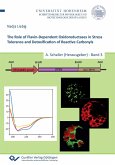The sodium-coupled phosphate transporter NaPi-IIa is the main cellular carrier accomplishing kidney phosphate reabsorption. It is driven by the electrochemical Na+ gradient across the apical cell membrane, which is maintained by Na+ extrusion across the basolateral cell membrane through the Na+/K+ ATPase. Energy starvation is sensed by the AMPK, a serine/threonine kinase stimulating several cellular mechanisms increasing energy production and limiting energy consumption. AMPK provides a critical link between energy metabolism and cellular transport. The aging suppressor Klotho, a transmembrane protein, is a protease and hormone has been shown to exert a profound effect on phosphate metabolism, aging, and lifespan. Additionally, the enzymes SGK1, mTOR, Akt/PKB and Nedd4-2 are of critical importance for a wide variety of functions including bone mineralization and energy metabolism. The present book explores the mechanisms of phosphate homeostasis and the role of AMPK, Klotho, SGK1, mTOR, Akt/PKB and Nedd4-2 in the regulation of NaPi-IIa activity.








